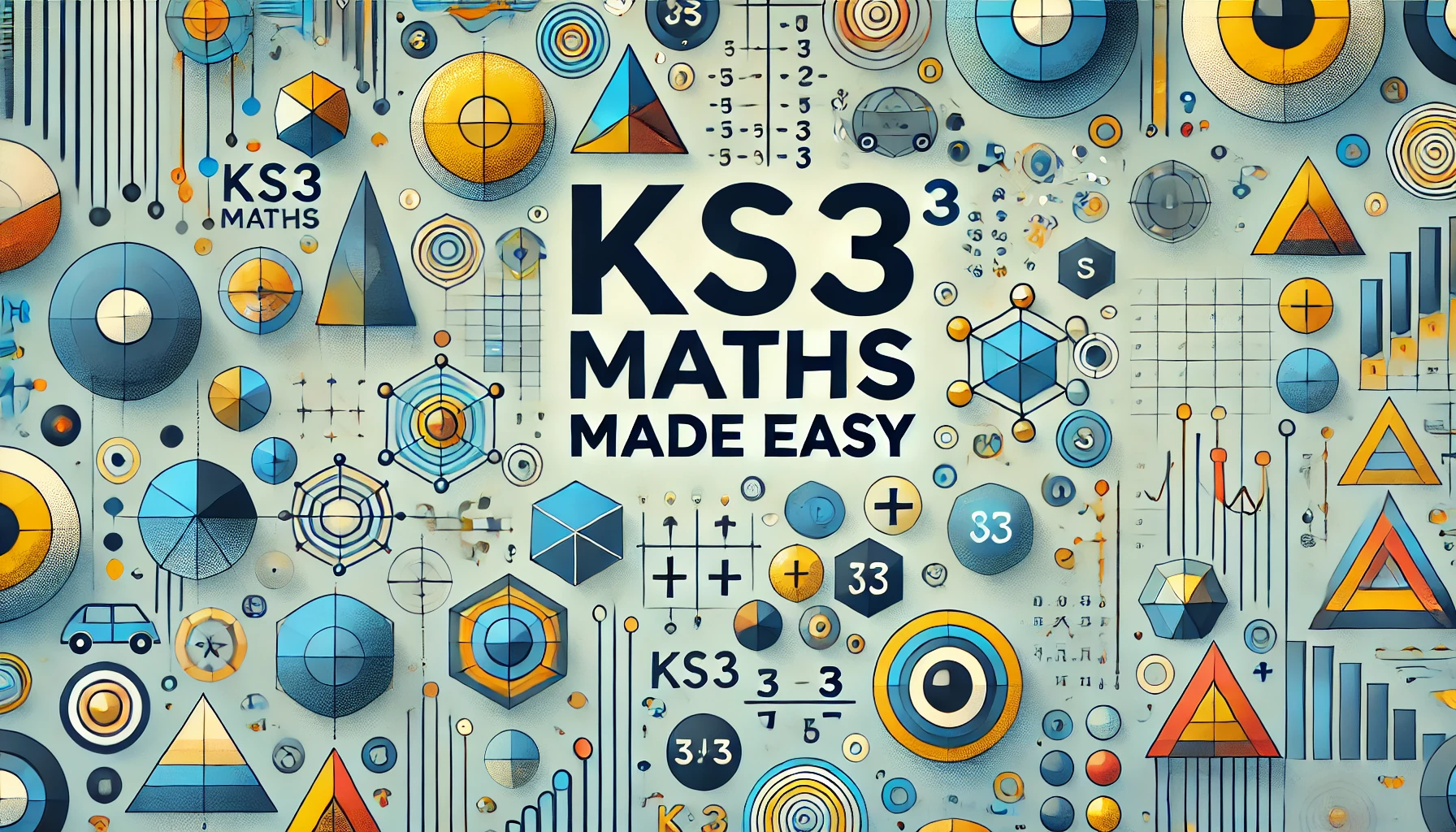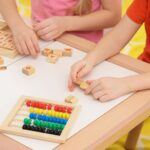Is your child in Year 7 and finding maths a bit hard? Whatever the case, understanding Year 7 Maths Questions is key to helping them feel more confident in the subject.
Maths at this stage introduces new concepts like fractions, algebra, and data handling, which can sometimes feel overwhelming. The good news? With the right support, practise, and real-life examples, your child can improve their skills and even start to enjoy problem-solving.
In this guide, we’ll go through common Year 7 Maths Questions, explain what your child needs to know, and share practical tips to make learning maths easier. Whether you want to help with homework, revision, or just encourage a positive attitude towards maths, this guide will give you the tools you need.
What to Expect in Year 7 Maths?
Year 7 (KS3) is a crucial stage in your child’s maths education. At this level, they move beyond basic arithmetic and begin developing problem-solving skills that will support their learning in later years. Understanding the key topics covered in Year 7 can help you support their progress and make maths feel more approachable.
Here are some of the main topics covered in Year 7 (KS3) maths:
- Numbers and Place Value – Understanding large numbers, rounding, and working with negative numbers.
- Fractions, Decimals, and Percentages – Converting between them, comparing values, and applying them in everyday situations.
- Algebra Basics – Learning about expressions, equations, and simple formulas.
- Geometry and Measurement – Identifying shapes, calculating area and perimeter, and understanding angles.
- Data Handling and Probability – Reading graphs, calculating averages, and exploring probability.
Year 7 Maths Questions: Numbers and Place Value
In Year 7, students continue to build their understanding of numbers, learning how to work with larger values, apply rounding rules, and perform basic operations more efficiently. They’ll need to apply division skills learned earlier, such as the bus stop method, to more complex problems. A strong grasp of place value helps children develop confidence in calculations and problem-solving.
What Your Child Will Learn
| Understanding large numbers | Recognising and working with numbers in the thousands, millions, and beyond. |
| Rounding numbers | Learning how to round numbers to the nearest ten, hundred, or thousand. |
| Place value | Identifying the value of each digit in a number. |
| Basic operations | Applying addition, subtraction, multiplication, and division to larger numbers. |
Practise Questions
1) Round 4,785 to the nearest hundred.
2) What is the place value of the digit 6 in 6,452?
3) Which number is greater: 35,678 or 35,768?
4) Write 8,503 in words.
5) Round 98,364 to the nearest thousand.
Encouraging your child to answer these questions out loud or write them down can strengthen their understanding and speed up their calculations.
Parent Tip
Numbers are everywhere! Use real-life examples to help your child practise:
Shopping receipts – Ask them to round prices to the nearest pound or estimate the total cost of a grocery list.
Sports scores – Look at football scores or athletics results and compare large numbers.
Daily news – Find large numbers in articles or statistics and discuss their meaning.
For extra practise, try printable Year 7 maths worksheets that focus on place value, rounding, and number operations.
Year 7 Maths Questions: Fractions, Decimals, and Percentages
Fractions, decimals, and percentages are important topics in Year 7 maths, as they help students understand how numbers relate to each other in different forms. Whether working with money, measurements, or discounts, these skills are used in everyday life.
your child will learn many things, such as :
| Converting between fractions, decimals, and percentages | Understanding that 0.5, ½, and 50% all represent the same value. |
| Comparing and ordering values | Identifying which fractions, decimals, or percentages are greater or smaller. |
| Comparing and ordering values | Solving problems like "What is 20% of 150?" |
| Adding and subtracting fractions | Learning how to find common denominators to add or subtract fractions correctly. |
Practise Questions
1) Convert 0.75 to a fraction.
2) What is 25% of 200?
3) Write ⅖ as a decimal.
4) Which is greater: ⅗ or ⅔?
5) Add ⅓ and ¼. Write your answer as a fraction
Parent Tip
Fractions and percentages can feel abstract, so real-life examples make them easier to understand. Try using: Pizza or cake slices – Show how a whole can be divided into equal parts, helping children visualise fractions. You can also use Shopping discounts, when something is 50% off, ask your child to calculate the new price. By applying maths to daily situations, children will see its usefulness and feel more confident in their learning.
Year 7 Maths Questions: Algebra Basics
In Year 7, students are introduced to basic algebra, which forms the foundation for more advanced maths topics. They will learn how to:
- Work with expressions and equations.
- Solve for unknown values.
- Simplify algebraic terms by combining like terms.
Algebra helps children develop logical thinking and problem-solving skills, which are useful beyond maths.
Practise Questions
- Solve for x:
x + 7 = 12 - Simplify the expression:
3a + 4a
Encourage your child to write out each step carefully and check their answers.
Many children find algebra intimidating at first. Instead of seeing it as numbers and letters mixed together, encourage them to think of algebra as a puzzle where they are finding the missing piece. Using real-life examples, such as working out an unknown price in a shopping receipt, can make it feel more familiar.
Year 7 Maths Questions: Geometry and Measurement
Students also build on their geometry and measurement skills by learning about shapes, area, perimeter, and angles. They will explore:
- 2D and 3D shapes, including properties and classifications.
- Area and perimeter calculations for rectangles, triangles, and compound shapes.
- Angles, including measuring and identifying different types (right angles, acute, obtuse).
Practise Questions
- Find the area of a rectangle with length 8 cm and width 5 cm.
- How many degrees are in a right angle?
Help your child to show their working and check their answers to develop accuracy in their calculations.
Year 7 Maths Questions: Data Handling and Probability
Does your child love looking at sports scores, weather forecasts, or even board game results? If so, they’re already using data handling and probability without even realising it.
In Year 7, students learn to:
- Read and interpret graphs – bar charts, pie charts, and line graphs.
- Calculate averages – finding the mean, median, and mode in a set of numbers.
- Understand probability – predicting outcomes using fractions, decimals, and percentages.
Practise Questions
- Find the mean of these numbers: 5, 7, 9, 10.
- What is the probability of rolling a 6 on a six-sided die?
Encourage your child to think logically about probability. If they roll a die, is a six more likely than a three? If they pick a card from a shuffled deck, how can they work out their chances?
Extra Support for Year 7 Maths Questions
Maths can be challenging, and every child learns at their own pace. If your child needs extra support with Year 7 maths questions, there are plenty of free resources and interactive tools to help them. Making maths enjoyable is key to building confidence, discover practical ways to transform maths from a chore into an engaging activity your child will look forward to.

Free Maths Worksheets and Online Quizzes
Practise makes perfect, and worksheets are a great way to reinforce learning. Many websites offer free downloadable maths worksheets and interactive quizzes designed for Year 7 students. These resources cover topics like fractions, algebra, and probability with easy solutions.
Where to Find Them: BBC Bitesize, Corbettmaths and Maths Genie
Conclusion
Now that we’ve covered the key Year 7 maths questions, you likely have a clear understanding of what your child needs to learn. With the right practise, resources, and support, they can approach maths with confidence rather than frustration.
Remember that success in Year 7 requires balancing all core subjects. While this guide focuses on mathematics, equal attention should be given to KS3 English and science to ensure well-rounded academic development.
If your child needs extra help, consider using online tutoring for KS3 Maths. A tutor can provide personalised guidance, clear explanations, and targeted practise to strengthen their understanding. By practising regularly, using interactive resources, and seeking help when needed, your child will feel more prepared and capable in Year 7 maths.
You Might Also Find it Interesting
What is Key Stage 3?
Key Stages and Ages: School Years Made Simple For Parents








